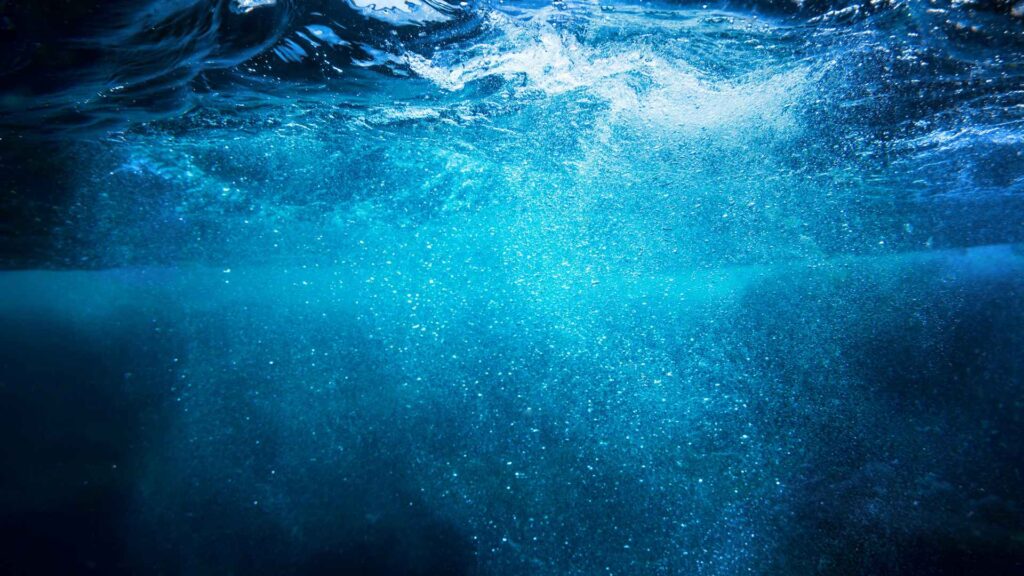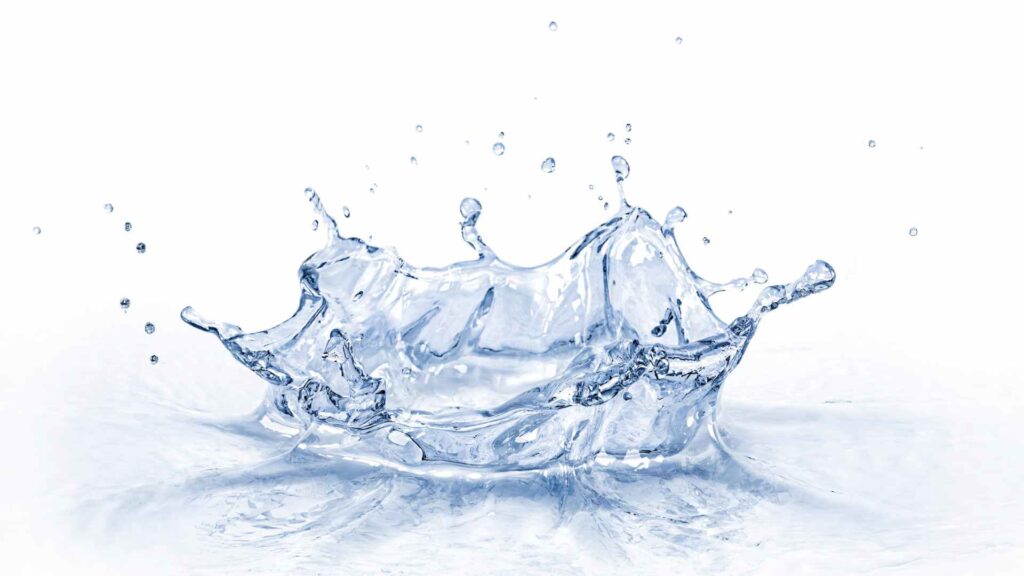Water is the essence of life, covering 71% of our planet and making up over half of our bodies.
From its unique properties to its crucial role in ecosystems, water continues to inspire awe and curiosity.
Dive into this ultimate guide featuring 145 fascinating facts about water, categorized for easy exploration.
The Wonders of Water’s Physical Properties
- Water is the only natural substance that exists as a solid, liquid, and gas at Earth’s typical temperatures.
- It has a high surface tension, allowing insects like water striders to “walk” on its surface.
- Pure water has no taste, color, or smell, making it unique among liquids.
- Water expands by about 9% when it freezes, which is why ice floats.
- Its solid form (ice) is less dense than its liquid form, a rare property among substances.
- A single molecule of water is made up of two hydrogen atoms and one oxygen atom (H₂O).
- Water is a universal solvent because it dissolves more substances than any other liquid.
- At sea level, water boils at 100°C (212°F) and freezes at 0°C (32°F).
- The surface tension of water allows it to form droplets instead of spreading out flat.
- Capillary action enables water to move upward through narrow spaces, such as plant roots and stems.
- Water can absorb a large amount of heat without a significant temperature increase, giving it high specific heat capacity.
- It takes 540 calories of energy to evaporate 1 gram of water, making it an excellent coolant.
- When heated from 0°C to 4°C, water becomes denser before expanding again as it warms.
- Water can dissolve ionic compounds like salt, as well as polar molecules like sugar.
- Icebergs are made of freshwater, even when they form in salty oceans.

Water’s Role in the Human Body
- The human body is approximately 60% water by weight.
- Your brain is made up of about 73% water, which affects memory and cognitive function.
- A 2% drop in hydration levels can lead to noticeable short-term memory loss.
- Blood is about 90% water, enabling nutrient and oxygen transport.
- Drinking water can improve mood and reduce fatigue.
- You lose water through sweating, urination, and even breathing.
- Staying hydrated helps regulate body temperature.
- Water is essential for flushing toxins from the body via the kidneys.
- Dehydration can impair physical performance and endurance.
- Saliva, which is necessary for digestion, is primarily made of water.
- Joint lubrication depends on water through a substance called synovial fluid.
- Water helps maintain skin elasticity and overall health.
- Each cell in your body requires water to function correctly.
- Proper hydration aids in weight loss by boosting metabolism.
- Muscle function and strength are enhanced when you’re well-hydrated.

Earth’s Water Distribution
- Earth’s surface is 71% water-covered, but only 3% of that is freshwater.
- Nearly 69% of Earth’s freshwater is trapped in glaciers and ice caps.
- Less than 1% of freshwater is readily accessible for human use.
- Oceans contain about 97% of the Earth’s total water supply.
- The Amazon River is the largest freshwater reservoir in terms of discharge volume.
- Only 0.007% of Earth’s water is potable and available for drinking.
- Most freshwater on Earth exists as groundwater beneath the surface.
- Lake Baikal in Russia holds about 20% of the world’s unfrozen freshwater.
- The Great Lakes contain approximately 21% of the world’s surface freshwater.
- About 90% of the world’s population lives within 10 kilometers of a water source.
- Antarctica is the driest continent but holds 60% of Earth’s freshwater.
- Saltwater covers the majority of Earth’s surface, supporting marine life.
- The Pacific Ocean is the largest and deepest ocean, holding more water than all landmasses combined.
- Deserts like the Sahara hide significant quantities of groundwater.
- Clouds contain millions of tons of water in the form of vapor droplets.
Water in Weather and Climate
- Water vapor is a powerful greenhouse gas, trapping heat in the atmosphere.
- Hurricanes draw their energy from warm ocean water.
- Rainbows form when sunlight passes through water droplets in the atmosphere.
- Fog is essentially a cloud that forms near the ground.
- Thunderstorms are fueled by moisture-rich air rising and cooling rapidly.
- Snowflakes form unique crystalline structures as they freeze.
- Water spouts are tornadoes that occur over water instead of land.
- Monsoons rely on seasonal water cycles, significantly affecting agriculture.
- Icebergs melting in the Arctic can disrupt global ocean currents.
- The hydrological cycle circulates water between Earth and the atmosphere.
- Hail forms when strong updrafts carry raindrops into freezing layers of the atmosphere.
- El Niño events involve the warming of Pacific Ocean waters, altering global weather patterns.
- Polar ice caps reflect sunlight, influencing Earth’s temperature.
- The water cycle includes evaporation, condensation, and precipitation.
- Flash floods often result from excessive rainfall overwhelming natural drainage systems.

Bonus Facts About Water
- Water covers 70% of the Earth’s surface but accounts for only 0.02% of its total mass.
- Jellyfish are 95% water by weight.
- The water on Earth today is the same water that dinosaurs drank millions of years ago.
- It takes about 2,700 liters of water to produce a single cotton T-shirt.
- Water has been found on the Moon and Mars.
- The longest river in the world is the Nile, stretching 6,650 kilometers.
- Oceans absorb about 30% of the CO₂ humans emit into the atmosphere.
- Water freezes faster in warmer environments, a phenomenon known as the Mpemba effect.
- A trillion tons of water evaporate into the atmosphere daily.
- About 70% of the water you drink is used to sustain brain functions.
- Ancient Roman aqueducts transported water using gravity alone.
- An Olympic-sized swimming pool contains approximately 2.5 million liters of water.
- It takes 7,600 liters of water to refine a single barrel of crude oil.
- The Dead Sea is the saltiest body of water on Earth.
- Water weighs about 8.34 pounds per gallon.
- The average American uses 80-100 gallons of water per day.
- Desalination technology can convert saltwater into drinkable water.
- Water pressure increases by one atmosphere for every 10 meters of depth.
- The Mariana Trench is the deepest point in Earth’s oceans.
- Water is used in hydraulic systems for lifting heavy machinery.
- Each year, over 1.7 billion people experience water scarcity.
- Solar stills use sunlight to purify water, making it safe to drink.
- Waterfalls form when rivers erode softer rock layers.
- The ancient Greeks invented water clocks for timekeeping.
- Plants release water vapor through a process called transpiration.
- Freshwater fish cannot survive in saltwater because of osmosis.
Conclusion:
Water is a marvel of nature, essential for life and endlessly fascinating. These 145 facts showcase the wonders of water, its vital role in our world, and its unique characteristics that inspire awe. Let’s cherish and protect this invaluable resource!
